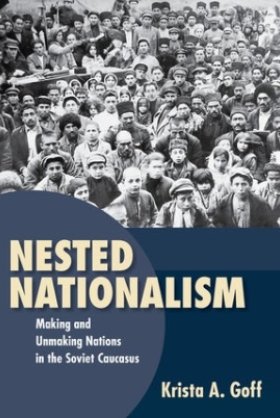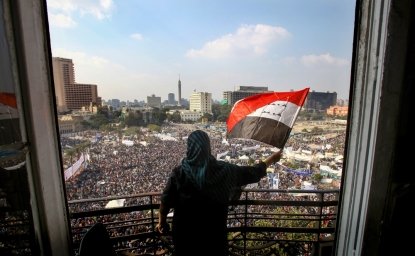Nested Nationalism: Making and Unmaking Nations in the Soviet Caucasus


Related Event
-
Nested Nationalism is a study of the politics and practices of managing national minority identifications, rights, and communities in the Soviet Union and the personal and political consequences of such efforts. Titular nationalities that had republics named after them in the USSR were comparatively privileged within the boundaries of "their" republics, but they still often chafed both at Moscow's influence over republican affairs and at broader Russian hegemony across the Soviet Union. Meanwhile, members of nontitular communities frequently complained that nationalist republican leaders sought to build titular nations on the back of minority assimilation and erasure. Drawing on extensive archival and oral history research conducted in Armenia, Azerbaijan, Dagestan, Georgia, and Moscow, Krista A. Goff argues that Soviet nationality policies produced recursive, nested relationships between majority and minority nationalisms and national identifications in the USSR.
Goff pays particular attention to how these asymmetries of power played out in minority communities, following them from Azerbaijan to Georgia, Dagestan, and Iran in pursuit of the national ideas, identifications, and histories that were layered across internal and international borders. What mechanisms supported cultural development and minority identifications in communities subjected to assimilationist politics? How did separatist movements coalesce among nontitular minority activists? And how does this historicization help us to understand the tenuous space occupied by minorities in nationalizing states across contemporary Eurasia? Ranging from the early days of Soviet power to post-Soviet ethnic conflicts, Nested Nationalism explains how Soviet-era experiences and policies continue to shape interethnic relationships and expectations today.
Author
 Krista GoffFormer Title VIII Short-Term Scholar;
Krista GoffFormer Title VIII Short-Term Scholar;
Assistant Professor of Russian and Soviet History, University of MiamiBrowse Insights & AnalysisExplore More
Browse Insights & Analysis
Living Interesting Lives: Daily Life Amidst Coup D’etat and Revolution
Duration:28:00Posted date/time:
Did the 20th Century Just End? One Historian’s Perspective
Duration:31:00Posted date/time:
Democratic Governance in Africa: Trendlines and Transformations
Duration:30:00Posted date/time:
NGO’s Soft Power in Kuwait: A Shift in Control or Core Management?
Posted date/time: